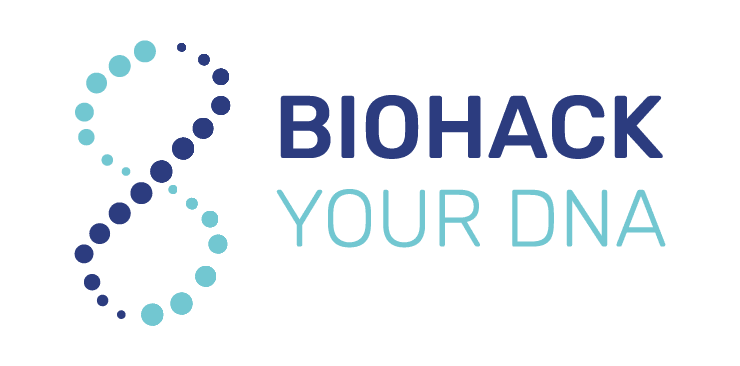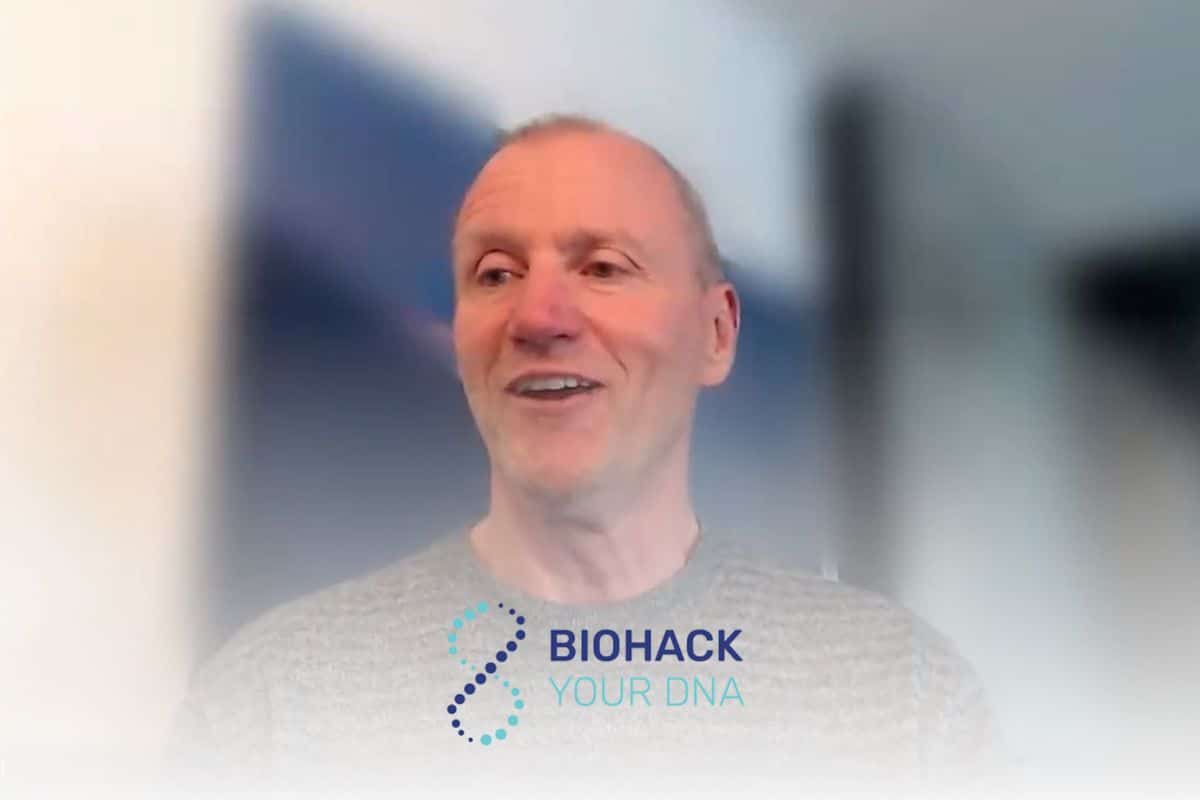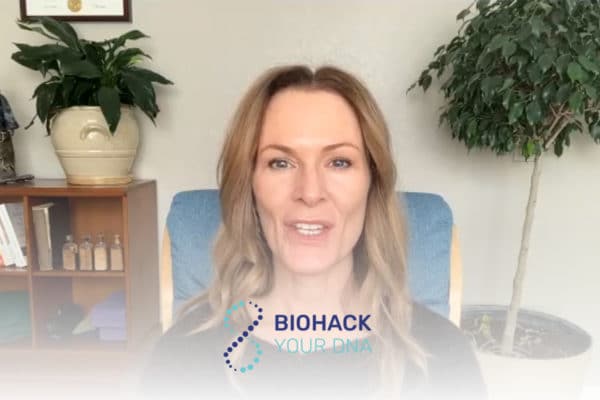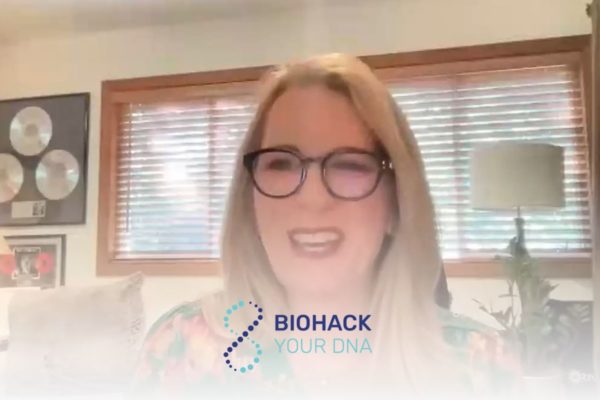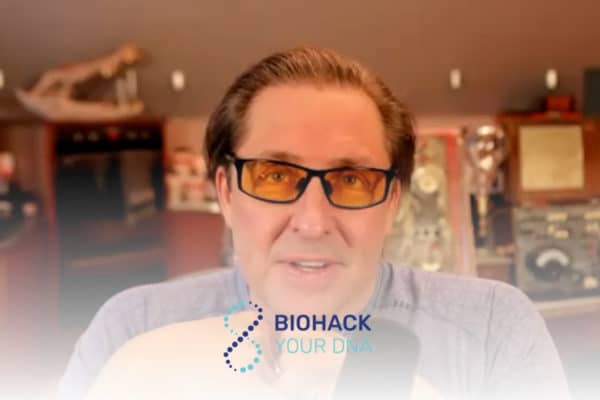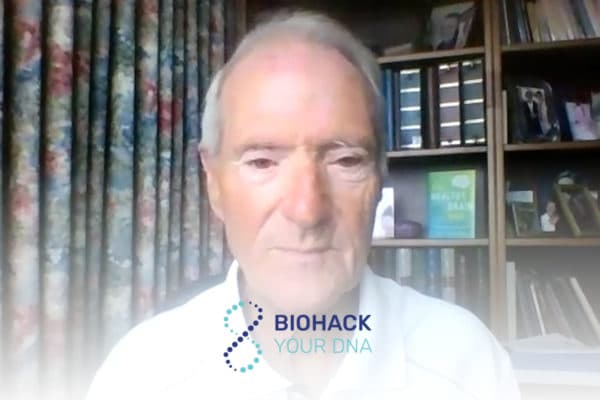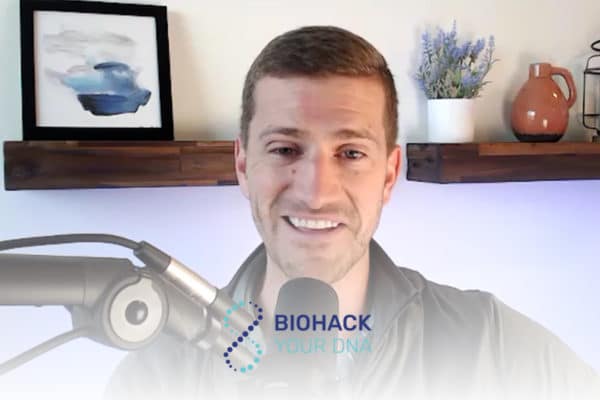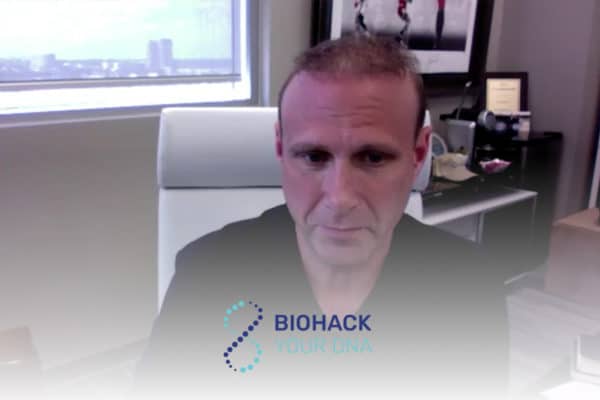Join the discussion below
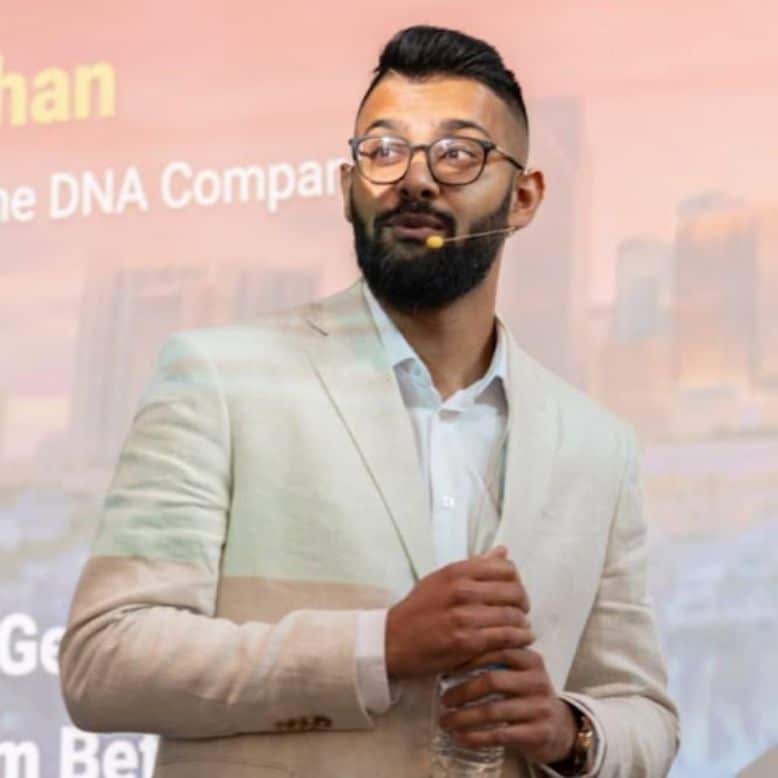
Harris Khan holds a Bachelor’s of Science in Honours Biomedical Sciences from the University of Waterloo. After completing his undergraduate studies, he pursued post graduate studies in Pharmaceutical Research and Development, before gaining employment at Apotex, Canada’s largest generic pharmaceutical company, in the Formulations Development department. Harris was a key... Read More
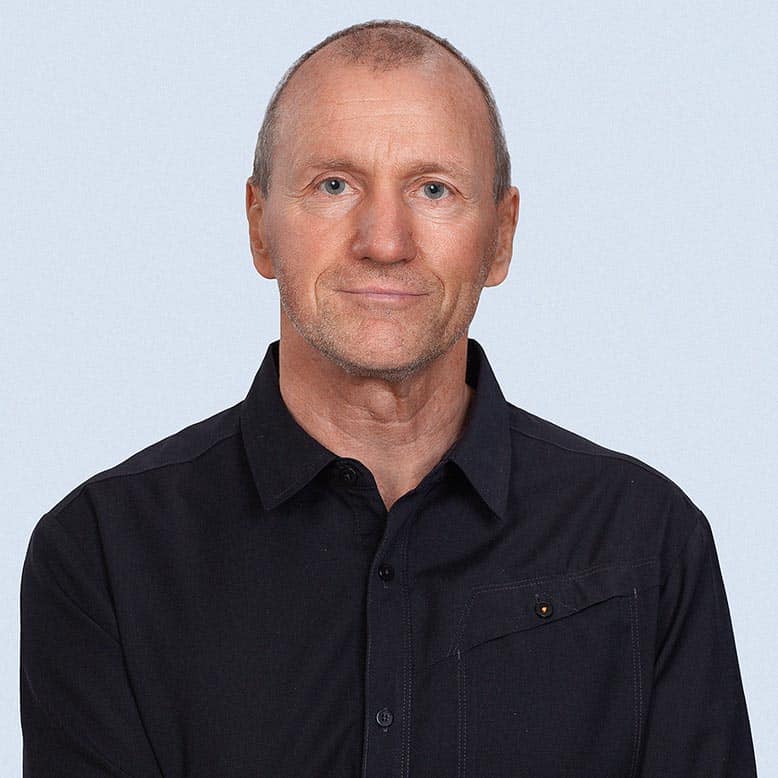
John has built & sold several companies, but his true passion is for helping leadership teams hone their strategy and story to maximize the value and impact of their transformative new solution. When he’s not mapping disruptive forces with a hot new startup, John loves to hang out at Whistler,... Read More
- “I advise the most advanced health technology companies on the planet. This DNA test is the most powerful health and wellness tool I’ve used in my life.”
- Why certain gene combinations make you sensitive to popular supplements and diets, and how to work around that based on your profile
Harris Khan
Hello again, everyone. Welcome back to the DNA Company’s online health summit. Today we’re reviewing yet another success story. I’ve got a wonderful friend, partner, mentor and all around incredible individual here with me today. I’d like to introduce you to John McDonald. John, it is a pleasure to have you here today and talk to you about DNA and genetics.
John McDonald
I’m delighted to be here. Thanks, Harris.
Harris Khan
Wonderful, so John, we’ve been doing these series and we’ve been interviewing people, sort of from all walks of life. Our listeners have had a chance to listen to top doctors, health experts but also consumers. Regular people like you and I but also people who are sort of involved in the future of healthcare. So tell us a little bit about yourself, what you do on a daily basis, and why you decided to explore sort of the world of genetics when you did.
John McDonald
Yeah, we probably have to split me in two pieces because, yeah, I’m a massive fan of DNA Co. I’m a very loyal user, I’ve had a huge impact and that’s me, the person. But professionally, I’m an entrepreneur but I’m a strategist and stopped building companies a decade or so ago. And work with transformative innovators in many sectors but most of my practice is in the digital health innovation space. And so I come at this as a person and my own personal bias and results and as a professional who works with innovators across the spectrum inside health and wellness.
Harris Khan
Fantastic. And so tell us, what was it about genetics, maybe, initially and sort of then the DNA Co. that kind of, that brought you close and made you wanna kind of take the dive and do your test?
John McDonald
Yeah, that’s probably the right place to start because I didn’t start like a normal person who went, “Oh, look at this DNA Co. thing, let’s do this.” For a number of years… I have a way of working, one of the things I do is work with emerging startups that are moving really fast. And part of my practice is helping leadership teams get really, really clear of how they see disruptive forces unfolding. And how to use the forces of disruption to help maximize their impact and their value. So that’s kind of a piece of my strategy. And I do a lot of work in the digital health space and for a number of years had the pleasure of working with a guy named Dr. Brendan Byrne. And Brendan’s a long time friend but we became colleagues and ended up doing a thing we called First Step. And First Step was a neat program. At the time he was, I think he was a chief strategist in Telus Health. A very, very savvy guy, one of the smartest guys I know. Very passionate about health. He says he’s a physician by, how’s it go?
Harris Khan
Location. I think it’s a physician by location…
John McDonald
Yeah, because he is a very successful, very savvy entrepreneur but he’s a passionate physician. And in his role in Telus Health, he looked at what I was doing with teams to kind of really get under the covers of how they think. And he said, “Wow, let’s do that one topic at a time. And on a topic level, bring people in from all over the place and spend a whole day with them, one by one by one and see what we learned.” He was a little skeptical but he was like, “Let’s do it.” So the first one we did was pharmacogenomics. And he picked it because he had a very hardened thesis. He knew exactly how it was gonna unfold. And we met with maybe a dozen different companies and he completely changed his position. The thinking, the… Entrepreneurs see the world in a different way. So it was a really amazing program.
We did six separate topics and two that are really meaningful to this conversation are pharmacogenomics, that was a topic. And then we land with conclusions and stuff. And the other one was precision health, precision medicine. And in both of those, me… For him, this is like business as usual. For me, I’m now in the room with all sorts of people I would not normally be in the room with, right? So we’re really unpacking the thinking of genomicists and things in microbiome and how data is getting used and how AI is getting used and how we’re… So blah, blah, blah, blah. And I don’t wanna bore you with all this stuff but it’s like, So I wasn’t loyal at all with DNA Co. I had my genome tested five, six times, not because… I’m meeting these companies, I’ll do their test, they’ll see their output.
But I didn’t continue anything with anybody else. But I fell in love with DNA Co at a really fundamental level which was, really goes back to Mansoor and the DNA of the company itself. What’s the point of knowing a bunch of genomics if you can’t do anything about it? So let’s focus on those elements of genome that are actually actionable and there’s evidence to show that if you do something about that one… And I’m like, “Well, that’s, okay, that makes sense to me.” So I did the whole program, went through the assessment, took the supplements. Again, in this funny world, right? I’m in this world of trying to learn, trying to be open minded, trying to understand how the world is unfolding. I didn’t actually have a health concern that I knew of. But man, oh man, then the learnings…
When Mansoor was explaining things to me out of my profile, I’m like, “Wait, well, I got that. No, I, yeah, I get that.” And then I went through a whole round of supplements and I remember the very first time we met after, right? So I had gone, whatever, six months. Three months, six months, I can’t remember. And he goes, “So you’ve been on the supplement program, we know you’re genomics and we targeted it. So what kind of impact are you getting?” And I’m like, “I don’t think anything. I don’t think I notice anything. Oh, one thing. For the last 30 years, I love naps, I nap all the time. You’ve ruined it for me, I take these things, I no longer wanna nap.” And then he starts to explain to me what happened. And after that, I’ve noticed many more things. It turns out that’s a pretty massive thing in shaping my body. And at that point I’m like, “Okay, there’s something really profound here.” And then it goes on and on and on, It’s had huge implications for me.
Harris Khan
That’s fantastic, fantastic. So let’s start there. I’d love to unpack sort of, that nap question because tons of people out there think naps are good and they can be good. Yeah. Everyone loves naps. Who doesn’t wanna take a nap in the middle of the day? But we were able to uncover certain things about sort of your detoxification profile, your… These core processes that are involved in dealing with the toxins you’re exposed to that were forcing you to take an nap so they had time to do it. And then with some intelligence supplementation, you were actually able to support some of those processes. So reducing the necessity or the sort of reliance on these naps for that recovery profile. Give us sort of an insight of when you were taking the naps, were they really frequent? What was going on there?
John McDonald
So when you used those words, the words make sense, but it doesn’t… They’re just words. What’s been fascinating for my little journey is that the words start to actually go, “Well that’s quite a thing.” Like the way my metabolism is. And I’m as bad as it gets for methylation and a couple of them but I have strengths and weaknesses, we all do. And so, your body needs time, blah, blah, blah blah. Okay, cool. I get it. But when you really live this and you… I just, wasn’t tired. I just didn’t have the sense. And then I’ve come to understand, It’s like there’s things happening in my body and my organs actually can’t deal with it all and when my body shuts down, then my organs have the chance to deal with it all. And at the same time, I measure resting heart rate and all of a sudden, I start to realize that starts to drop. And then the really weird thing is because of COVID, there was supply disruptions. So I got on this program, I’ve been on it for a few years. Everything becomes normal. I don’t nap. So then COVID, I can’t get any of my supplements. Three or four months in, I need a nap in the worst way. This is very real to me.
Harris Khan
Yeah.
John McDonald
It’s not just a bunch of words, this is literally changing my body’s ability to function.
Harris Khan
Right.
John McDonald
And that’s non-trivial as far as I’m concerned.
Harris Khan
And it goes back to look, people are always gonna debate, hey, do supplements work or they don’t work? The reality is it actually depends on the person. If what works for you isn’t necessarily gonna work for someone else. In fact, if I took the version of the supplements you were taking, I’d have the opposite reaction. I would actually feel like I need to take more naps because my genes aren’t predisposed to work with the supplements you were taking. And it comes back down to precision health, right? Precision medicine, that’s the word.
John McDonald
I was gonna say, it’s about average based care versus precision care, right? So I was supplemented before. A matter of fact, one of the things I was doing, everybody should do I was taking my Bs, vitamin B. Mansoor very early in the program goes, “That will kill you.” Because my genomic makeup is such that I am basically allergic to methylated B, almost all Bs are methylated and they make me sick. I feel sick when I take them but I power it through because I’ve gotta take these, right? So like for most people, it’s the right thing to do. Average based, it makes sense. But one person at a time, it doesn’t make sense.
Harris Khan
Yeah. Yeah. And that’s… It’s profound that one of the things we’ve been able to do here when we provide sort of people with those insights. Look, we tell people as much as we’re called the DNA company, it’s really not about the gene as much as it is about the problem you’re trying to solve. You’ve got a health concern and no Bible of genes and their information that I gave you is gonna solve your problem. But if I tell you, hey, this is who you are as a person, this is what’s going on. And when you do this, take this, avoid this, act like this, you’re gonna be at 2.0 of yourself and they do it. They’re like, “Oh, okay, this is serious.”
John McDonald
It’s true but in fairness, you, DNA Co. also have very strong science and you work… You bring naturopathic medicine professionals into this. It’s not like going in the store and buying a jar, right? And it’s really meaningful because the advice that I’ve gotten along the way with DNA code naturopaths and then I have my own naturopath. And because of my world, we run full blood tests, we run every crazy test. And so I got all kinds of markers along the way. That’s precision medicine, right? All cars should have four liters of oil, but your car is down a liter so you better add some, you know? It’s not your car, it’s not about all cars.
Harris Khan
Exactly. Exactly.
John McDonald
I think this is not as… Like supplementing, it’s not really supplementing so much as here’s what your body needs. Here’s where you’re up, here’s where you’re down. I just don’t think the word supplementing covers what’s really happening.
Harris Khan
Yeah, because when people think supplements, they just immediately go to multivitamins or they go to, whatever, weight loss products or muscle building products. But really, it’s about being very, very specific, very precise with where you need physiological support in your body. And one of the methodologies we use, the modalities we use is concentrated versions of these nutrients that, yes, you can find in whole foods but sometimes, you can’t eat two bowls of broccoli to get the amount of that nutrient you need to impact you at a physiological level which also goes back to the important point you made that it’s… We’re not just a genetic company providing gene data to you as a consumer, we’re actually pairing it with years, decades of clinical insights, doctors sitting down, reviewing results, talking to patients.
John McDonald
Not a trivia?
Harris Khan
Yeah, exactly.
John McDonald
This is different than I’m launching a supplement company so I’ll go look at online demand and the things that people search for more are the ones I’m gonna offer. That’s not what this is about.
Harris Khan
Exactly, it’s the modality. And we’ll see so much of… For you, like you said, hey, methyl B12, not good for you. You need to take adenosyl B12 because of the impact that version of the supplement has or that version of the nutraceutical has on your body because of a disparity in your genetic profile. So that’s wonderful.
John McDonald
I also have a little quirk that I use when I explain to people, I don’t know for everybody but I’m a rare, I have a rare genetic thing where I cannot take statins.
Harris Khan
Right.
John McDonald
Doctors prescribe statins, like they’re Chiclets. So, one of the things that, again from DNA cause, I was told very early is somewhere along the line, some doctors are gonna tell you to go on statins. You need to tell them, no. They won’t know that genetically, that’s poison for you.
Harris Khan
Right. Right.
John McDonald
They won’t know, they’re average base. They won’t run the test. They won’t know this about you. You need to tell them this. And that’s kinda a scary thought.
Harris Khan
Now tell us about your diet and sort of what are some of the things that you noticed in your genetics that sort of influenced your diet that were sort of, aha, moments and maybe some things you changed when you learned about it.
John McDonald
Again, I don’t know that I changed anything at the beginning. I came to understand things about my diet.
Harris Khan
Right, right.
John McDonald
Why I eat so many green vegetables turns out to actually be directly linked back to something in my genome. I crave them. And there was a reason for that.
Harris Khan
The craving part is so important. And we always tell this to people. Most of the time, when we meet people and we do their genetics, when we’re going through their genetics, we’re explaining, hey, this is how you are. And he’s like, “Yeah, I always knew, my body, I hated running, every time I tried to run, I did not like running, I liked lifting weights and everyone kept telling me to run.” Turns out their genetics suggests that if they ran, they could probably run into a heart attack. That’s literally their genetics, right? The body intuitively knows, right? So you’re craving for green. It’s like, dude, that’s the nutrients in those greens I literally need to function optimally. So yes, you’re gonna have a craving for them because I need them. And then you look at your genomics, you like, “Oh, well that makes a lot of sense.” It can be pretty powerful.
John McDonald
That’s how the conversation went.
Harris Khan
That’s funny.
John McDonald
I don’t know that because of the program, I’ve made a lot of changes. We have, over the years shifted to more and more plant based. But again, that’s because in my world, I see so much evidence of that. And then, along the way, I ended up with a histamine intolerance. Well, I probably had it all along, but I didn’t know. So I’ve gone through a lot of adjustments and DNA Co. has helped me a lot in measure. Which is part of why I’m… I’m clearly a fanboy but I have little evidence points. Like they helped me so much with… They just went out of their way to help me. And like recently, in COVID you had supply shortages, you couldn’t send things. And yet I needed a couple specialized things and your people just went out of the way to help me find them. And not only that I would… We would go back and forth and I would find one or whatever and they would go, “No, you don’t want that one because they use this kind of an ingredient and that’s a synthetic ingredient, let’s get a…” They just have so much knowledge about quality and so much care about quality.
Harris Khan
Right.
John McDonald
You can get that outta marketing, but you don’t believe it. I’ve lived it, how you guys see the world.
Harris Khan
Right, right, right. Amazing. So John, with your skills, expertise, years of experience, tell us about the future of healthcare and sort of where you see all these modalities playing out and what does the consumer look forward to when they say, “Okay, I wanna address my health. I wanna take care of my health.” It’s a loaded question, I know but…
John McDonald
In my world, the future of healthcare. I live in the middle of the… But if you wanna really simplify it, it’s clearly a shift away from episodic care to proactive care. So what I mean by that is, let’s not wait till you have a heart attack and then solve the heart attack, let’s see it earlier and do some things about it. So that’s step one. And that’s just simply because, well, first of all, it’s stupid to just wait till you fall off the cliff. But also the health systems will collapse under the financial pressure the way it is right now. So the future of healthcare, it’s gonna move more and more to proactive. And when you move to proactive, it’s critical to use data about the individual.
So we’ll move more and more away from average based care and more and more towards doing… We talk precision or personal or whatever, it’s not that complicated. Use science to understand that individual and adjust the treatment to work best for that individual. And there’s a million things pushing us in that direction. But that’s where all this goes. You guys are already way out in front of it.
Harris Khan
Thank you. Thank you. Well, John, thank you so much for your time, I know you’re a busy guy. I appreciate you kind of taking out the time and sharing your thoughts with us and being a real believer in what we do. Any parting words to the listeners today?
John McDonald
Yeah. Do this.
Harris Khan
Well, that’s pretty effective and concise, yeah. That’s awesome. Thanks everyone. Thanks for listening again. And tune in next time. We’ll talk to even more health experts from around the world. Take care. Bye.
Downloads
